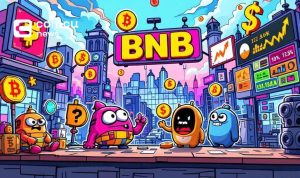
Voyager’s Chapter 11 Bankruptcy Protection And What It All Means
Voyager has entered Chapter 11 which is a bankruptcy procedure under the US Bankruptcy Code. But not all bankruptcy procedures are the same and Chapter 11 is quite different from the insolvency processes in other leading jurisdictions which tend to be English law inspired.
Firstly, lets understand what happens when a business becomes insolvent. You don’t instantly liquidate a business just because it is insolvent – there is often more value in keeping a viable business operating than straight up selling everything in a fire sale.
A business has a brand name, clients, operations etc which are valuable even though it is financially distressed and a fire sale is simply negative EV. The clever thing to do in this case is to restructure its capital structure to keep the business going.
So unlike 3AC which will cease to exist when the BVI liquidation process is completed, Voyager will continue to exist as a business after it emerges from the Chapter 11 process. Now Chapter 11 is somewhat unique because it is an incredibly ‘debtor-friendly’ process.
Because most insolvency processes are ‘creditor-friendly’. For example, In a Chapter 11, the management stays on whereas in an English (or BVI) insolvency process, the management is replaced by professionals.
So what happens when you file for Chapter 11? The moment a company files for Chapter 11, an automatic worldwide moratorium comes into place. This means that no creditors can enforce their debt claims or enforce against any security/collateral without permission from the court.
Once a company goes into Chapter 11, the management have an exclusive period of 120 days to propose a reorganization plan. Voyager has moved very quickly and has already filed a plan of reorganization! When a company goes insolvent, the basic rule is the ‘pari passu’ rule – that is all creditors share the assets equally. If you have 1 million and you owe 5 creditors 1 million each, they recover 200k each.
But this is often modified by statutory law and commercial arrangements. So the usual priority in an insolvency process would look something like this: (1) administrative costs (2) certain ‘priority claims’ like employee claims, tax claims. pension claims etc (3) secured creditors (4) unsecured creditors.
Now a plan is passed by voting on ‘impaired’ classes. Being ‘impaired’ means that you are being asked to compromise on your claim. So if you are owed 500k and you are being paid 500k because you have a priority claim, you don’t get to vote at all (cause you’re paid in full).
But if you are owed 500k but the plan is to pay you 200k plus some equity (or a debt note), then you do get to vote on the plan because you are being compromised! Now classes are set up based on priority and the ‘type’ of claims. In order for a Chapter 11 plan to pass at least one impaired class needs to approve the plan which means at least 2/3 of the claimants in the class plus at least half in number must vote in favour.
So if there are 1000 people in the class of creditors who are owed 3m altogether and all of them vote, at least 501 persons must vote yes and those 501 persons must collectively own at least 2m of the claims.

So who are the impaired classes in the Voyager filing that are entitled to vote? Voyager has listed 9 classes and only two are entitled to vote. These are (a) account holders and (b) ‘Unsecured Claims’. The plan suggests that account holders receive a mixture of crypto, Voyager equity, Voyager tokens and recoveries from 3AC. Account holders will be able to choose to either receive more crypto or receive more Voyager equity.
The ‘Unsecured Claimants’ are likely trade creditors, other lenders etc (excluding Alameda). And what they get is a pro rata share of a ‘Claims Allocation Pool’. The definition of this is unhelpfully left blank at the moment so it remains to be seen how large this pool is.
Regardless, while Voyager would surely like for both classes to vote in favour, only one of those classes have to vote in order for Voyager to use what is known as a cramdown. This allows the court to approve the plan as long as one impaired class has voted in favour as long as the plan is a fair and equitable one and the ‘absolute priority rule’ has been met (which means unsecured creditors either get paid in full or any subordinate classes (i.e. equity) get nothing).
Under the proposed plan, all Voyager equity holders are wiped out.
This plan allows Voyager to survive without an exogenous injection of capital because it moves the recovery risk on the 650m+ 3AC Loan onto the Account Holders which is from my reading, the reason why 3AC is facing insolvency.
While it can standalone, it does appear that Voyager is simultaneously seeking third party financing. It seems that most third parties have pulled out because it is ill-advised to invest into an unstable platform and the Chapter 11 proposal is to provide a stabler platform from which negotiations can commence.
Source: @wassielawyer
DISCLAIMER: The Information on this website is provided as general market commentary and does not constitute investment advice. We encourage you to do your own research before investing.
Join CoinCu Telegram to keep track of news: https://t.me/coincunews
Follow CoinCu Youtube Channel | Follow CoinCu Facebook page
Hazel
CoinCu News






















